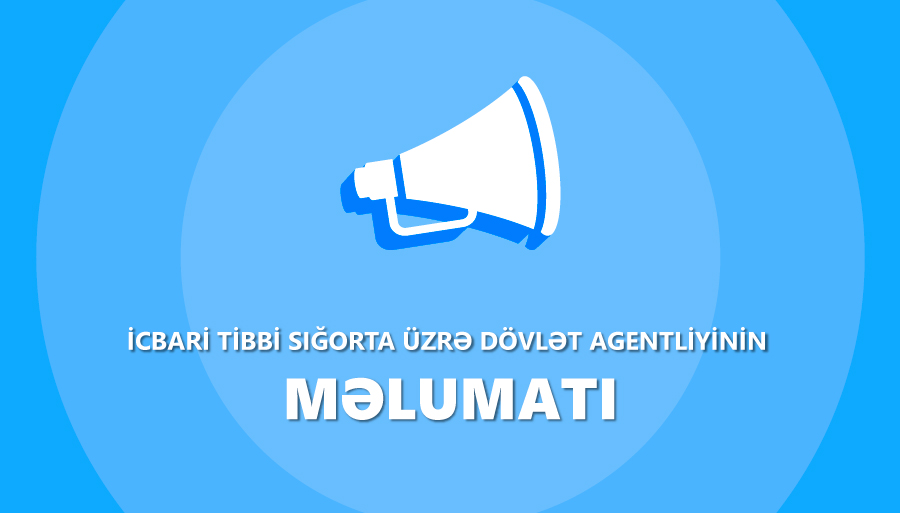14 Mart 2022 17:30
Talassemiyalı pasiyentlərə sümük iliyi köçürülüb
2020-ci ilin aprel ayından İcbari Tibbi Sığorta üzrə Dövlət Agentliyi (Agentlik) tərəfindən icra olunan “Talassemiya ilə mübarizəyə dair 2015-2020-ci illər üçün Dövlət Proqramı” çərçivəsində 32 nəfərə sümük iliyi transplantasiyası əməliyyatı həyata keçirilib. Onlardan 29 nəfəri beta talassemiya xəstəsi, 3 nəfəri isə kəskin mieloblast leykoz, Hoçkin limfoması və multipl mielom diaqnozu qoyulan şəxslər olub.
Əməliyyat olunanların 19-u 1-12 yaş arası uşaqlardır. Əməliyyatlarda sümük iliyi donorları pasiyentlərin qardaş və bacıları olub. Cərrahi əməliyyatlar “Tibbi Ərazi Bölmələrinin İdarəetmə Birliyi”nin (TƏBİB) tabeliyindəki Milli Hematologiya və Transfuziologiya Mərkəzinin Talassemiya bölməsində (Talassemiya Mərkəzi) icra olunub.
Milli Hematologiya və Transfuziologiya Mərkəzinin Talassemiya bölməsinin Sümük illiyi transplantasiyası şöbəsinin müdiri, hematoloq Nərgiz Əliyevanın sözlərinə görə, irsi və bədxassəli hematoloji xəstəliklərdə qan hüceyrələrini yaradan sümük iliyi normal funksiyalarını itirdiyi üçün sümük iliyində qan hüceyrələrinin əmələ gəlmə prosesində bir sıra problemlər yaranır: “Bu xəstəliklərin müalicəsində sümük iliyi transplantasıyası önəmli yer tutur. Sümük iliyi transplantasiyası sağlam qan hüceyrələri əmələ gətirməsi üçün kök hüceyrələrinin xəstəyə nəql edilməsidir. Bu müalicə metodu ilə xəstələrin irsi və bədxassəli hematoloji xəstəliklərdən tamamilə müalicə olma şansları olur. Əməliyyatdan sonra bir çox hallarda donorun limfositləri resipiyentin orqan və toxumaları tərəfindən yad kimi qəbul olunur və resipiyentin llimfositləri onları dəf etməyə çalışırlar. Bu zaman yan təsirlərin qarşısının alınması üçün transplantasiya öncəsi və sonrası xəstəyə qoruyucu dərmanlar təyin olunur”.
Nərgiz Əliyeva əlavə edib ki, köçürülmüş kök hüceyrələr təxminən 3 həftə ərzində yeni sümük iliyinin fəaliyyətinə başlanğıc verir. Bu müddət ərzində xəstəyə qan məhsulları (eritrosit, trombosit kütlələri, yeni dondurulmuş plazma) və antibakterial, antiviral, antifunqal müalicələri aparılır. Xüsusi olaraq qeyd etmək istəyirik ki, istər əməliyyata hazırlıq dövründə istifadə edilən dərmanlar (kimyaterapiya üçün), istərsə də kök hüceyrələrin xəstənin immun sistemi tərəfindən qəbul olunması üçün təyin olunan immunosupressiv dərmanlar xəstələrə ödənişsiz verilir.
Məlumat üçün bildirək ki, sümük iliyi transplantasiyası, xəstəliyin fəsadlarının qarşısının alınması, əməliyyatdan əvvəl aparılan laborator müayinələr “Talassemiya ilə mübarizəyə dair 2015-2020-ci illər üçün Dövlət Proqramı”na uyğun olaraq ödənişsiz həyata keçirilir.
Talassemiya irsi qan xəstəliyidir. Xəstəlik, qırmızı qan hüceyrələrindəki hemoqlobinin sintezinin pozulması ilə əlaqədardır. Talassemiya daşıyıcısı olan insanların demək olar ki, xüsusi şikayətləri olmur. Talassemiya daşıyıcısı olduqlarını da çox vaxt təsadüfən, başqa problemlə bağlı müayinə zamanı qan analizi nəticəsində öyrənirlər. Valideynlərdən sadəcə biri talassemiya daşıyıcısı olduqda övladın talassemiya xəstəsi olma ehtimalı sıfıra bərabərdir. Lakin, ata və ananın hər ikisi talassemiya daşıyıcısı olduqda, onların övladı 25% ehtimalla tamamilə sağlam, 50% ehtimalla talassemiya daşıyıcısı, 25% ehtimalla isə talassemiya xəstəsi olaraq dünyaya gəlir.
Xəbərlər
İcbari tibbi sığorta ilə 182 000-dən artıq doğuş aparılıb
16 İyul 2024 11:10
Diz oynağının endoprotezləşməsində İsveçrə istehsalı protezlərdən istifadə olunur
12 İyul 2024 10:42
Kəskin orta otitin cərrahi müalicəsi icbari tibbi sığorta ilə qarşılanır
09 İyul 2024 11:11
Tiroidektomiya əməliyyatı icbari tibbi sığorta ilə ödənişsizdir
05 İyul 2024 10:25
İcbari tibbi sığorta ilə qasıq yırtığı açıq və laparoskopik üsulla bərpa olunur
01 İyul 2024 15:18
İcbari Tibbi Sığorta üzrə Dövlət Agentliyinin nümayəndə heyəti Yaponiyaya işgüzar səfər edib
28 İyun 2024 10:51
İcbari tibbi sığorta ilə 540 splenektomiya əməliyyatı icra olunub
24 İyun 2024 14:52
Zaur Əliyev Goranboy şəhərində vətəndaşları qəbul edib
21 İyun 2024 17:00
İcbari tibbi sığorta uşaqlığın çıxarılması əməliyyatını qarşılayır
21 İyun 2024 10:57
Agentlik, TƏBİB və Ankara Universiteti üçtərəfli anlaşma memorandumu imzaladı
14 İyun 2024 14:49










